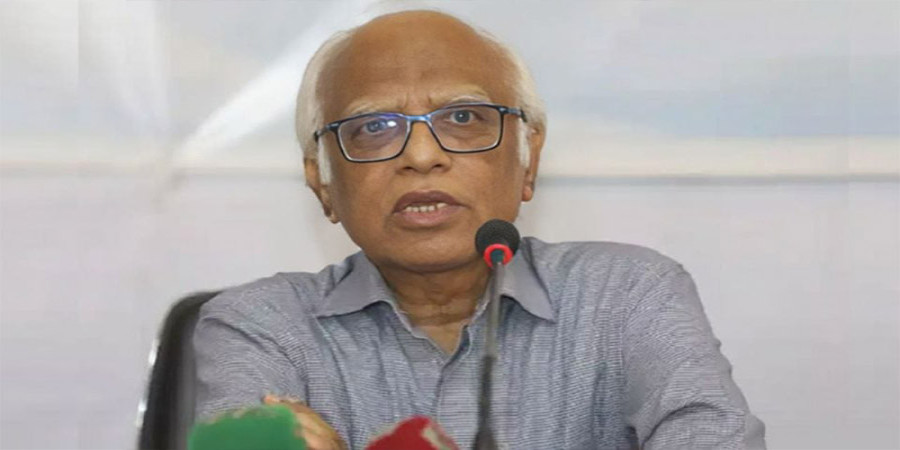
ছবি: Education Advisor Wahiduddin Mahmud | File Photo
Education Advisor Wahiduddin Mahmud has urged students to come forward with their legitimate demands and engage in discussions rather than resorting to road blockades. He assured that their valid requests would be addressed, emphasizing the importance of dialogue over disruptive protests.
In his statement on Monday, following an Executive Committee of the National Economic Council (ECNEC) meeting in Sher-e-Bangla Nagar, Dhaka, Mahmud responded to questions from journalists regarding the ongoing student protests in the city. The ECNEC meeting, chaired by Interim Government Chief Adviser and ECNEC Chairperson Dr. Muhammad Yunus, approved five development projects during the session.
Mahmud acknowledged the rising frustration among the public due to the frequent protests by students in Dhaka. When asked about how the city could deal with the constant disruptions, he said, "We have repeatedly stated that both workers and students are protesting, but not only students—many other groups are also organizing protests in the city. They are blocking roads, which is becoming a major issue. I alone cannot resolve this situation."
He further addressed the concerns by urging students to bring their justified demands directly to him, assuring that their needs would be met. “Come to me with your legitimate demands, and we will ensure they are fulfilled. Many such demands have already been addressed and halted because we assured them that their just needs would be met," he explained.
However, Mahmud also made it clear that some demands are not reasonable and would not be entertained. “There are certain demands that are unjust and unreasonable, and we will not accept them. Even if these demands are not valid, blocking railway tracks and attacking passengers will only lead to the public turning against the protesters. From that perspective, we are in a stronger position,” he said.
He emphasized the negative impact of such protests on the general public, particularly when students or other groups take extreme measures like blocking essential services such as railways. Mahmud warned that such actions would not only fail to achieve their goals but would also alienate the public, who are directly affected by the disruptions.
In his remarks, Mahmud also pointed out that many of the student protests have calmed down after discussions and negotiations, as many of the demands were indeed fair and were addressed promptly. However, protests that involve unjust demands, such as hindering transportation or attacking passengers, were not supported and would be opposed by the public.
The Education Advisor’s statement comes at a time when students in Dhaka have been increasingly protesting over various issues, including the demand for improved public transportation, safety on the roads, and fair treatment in educational institutions. Mahmud's call for dialogue is aimed at finding peaceful solutions to these issues without causing further inconvenience to the citizens of Dhaka.
Mahmud also acknowledged the challenges the government faces in managing the protests, highlighting the need for coordinated efforts with other agencies to ensure that public disruptions are minimized while addressing the legitimate concerns of the students.
In conclusion, Mahmud reiterated that while the government remains committed to meeting the justified demands of students, it would not tolerate actions that disrupt public order or harm innocent people. He called for continued cooperation and peaceful dialogue to ensure a positive resolution to the ongoing protests in the city.
repoter






